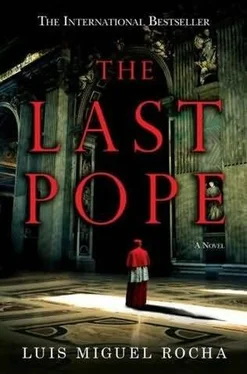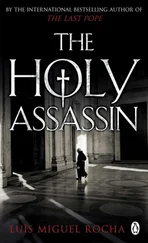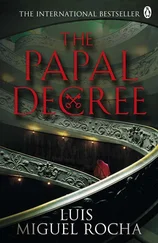But at that moment, ambition was not the source of Villot’s anguish. For years, he had been resigned to his failure to receive the glory of being a successor to the prince of the apostles. What he wished for with all his heart was to have a different man in charge, one who didn’t cause all the headaches of the current pontiff.
It wasn’t even an hour since he received certain papers from the office of Albino Luciani. They contained orders, decisions, and replacements. Some of those imminent changes would be confirmed within hours or the next day. Villot took the papers from the top of the desk, and reread what he already knew by heart.
Benelli in my position? he said to himself. Can you think of a greater outrage?
“This is overly risky, Holy Father,” Villot had said when he received the papers and was able to take a glance at the first papal decisions. “What will be left of the Church if we do this?”
“The Church will survive in its purity, humbleness, and humanity,” was Albino Luciani’s only comment.
Villot held the papers with one hand and stroked his cap with the other, as he read the absurdities written by the man who was supposedly the supreme voice of Christianity. His desire to make the Church’s position concerning birth control more flexible was only one of the pontiff’s misdirected notions.
“But Holy Father, this goes against Church doctrine. It opposes the dictates of other popes.” The secretary of state was visibly disturbed.
“Infallibility,” was the answer.
“Sacred infallibility,” Villot emphasized.
“Sacred? We both know that it’s a mistake,” the pope declared with his usual serenity.
“How can you say such a thing?” the cardinal asked, hypocritically crossing himself.
“I can say it because I am the pope and know that I err like any human being.”
“A pope is infallible. And these dictates put in question decisions made with the assurance of papal infallibility.”
Villot’s combative nature wouldn’t allow him to address his superior with submission and obedience. He argued with John Paul I as if he were talking to an assistant or secretary. Albino Luciani seemed to ignore Villot’s lack of respect, although he felt uneasy. He would never have thought Villot capable of such behavior.
“A Church that calls itself infallible can’t cure its own ills,” Luciani declared. “You and I know how the idea of infallibility was made official only in 1870.”
On July 18 of that year, Pope Pius IX issued the constitution for dogma Pastor aeternus, in which it was specified that the supreme pontiff was infallible when he spoke ex cathedra, that is, by virtue of his high representation and position as spiritual heir to Saint Peter. Whatever contradicted the pope’s words could and ought to be considered anathema.
“Are you criticizing the acts of Pius IX?” Villot asked.
“Can one who doesn’t criticize his own ever improve?”
The cardinal sat down on one of the many chairs facing his desk, and covered his eyes.
“I can’t believe what I’m hearing.”
“Stop acting like a naive parish priest, Cardinal Villot. You know as well as I do that infallibility only serves to keep us in shackles.”
Villot withdrew his hands from his face. “What are you saying?”
“I think I have said exactly what I meant to say. A pope is infallible in his directives concerning the doctrines of faith and morality. Isn’t that right? Doesn’t it seem to you that this is an exceptional way of ensuring that certain customs, perhaps pernicious ones, will never change?”
“Anathema, sacrilege!” Villot sputtered, despairing before this enigma, a hurricane acting like a pleasant summer breeze.
“Sacrilege?” Albino Luciani repeated with a faint smile. “The time has come for me to tell you that you would do well to show some respect for the person you’re talking to. After all, I’m infallible.”
The cardinal bowed his head.
“I won’t be using my position or the supposed divine faculties you attribute to me, because that would indicate my acceptance of what they represent. I only want to remind you that, in holding your post, you ought to behave differently. Respect for others isn’t something that depends on you, Cardinal Villot. And I repeat that infallibility is an error and an unwarranted pretense. And that is why it’s going to be terminated.”
Villot understood that it would be fruitless to keep beating his head against the wall. In fact, those papers from Pope Luciani contained even more outrageous proposals than his heresy concerning infallibility.
“And as to the replacements, Holy Father, do you have any idea of the trouble they would cause in the heart of the Curia?”
“I think I have a pretty good idea, Cardinal Villot,” the pope replied naturally.
“But, but, what about the cardinals? And the moderate prelates who voted for you?”
“I didn’t ask anybody to put me in this place. And I don’t think the decisions I have made could be considered belligerent in any sense. I’m only concerning myself with what I believe should concern me, Cardinal. Don’t forget that my obligations are to the faithful and to God.”
Villot had used most of his arguments. No matter how he pressed his reasoning, so skillful and wise on many occasions, Luciani responded nobly and forcefully, and with unassailable firmness. There was no way to convince him, at least not with words.
“Holy Father, let me study the situation more thoroughly. I will review the names carefully, and give you some alternatives, particularly concerning my own replacement and for the leadership of the IOR.” If the Holy Father agreed to this delay, perhaps there was still some hope.
“It won’t be necessary to go to that trouble, Cardinal Villot. That is my final word. Don’t burden yourself with looking for alternatives. I’m sure that your candidates will be good, capable people, but I won’t accept them. My decision is irrevocable. It should start with Archbishop Marcinkus’s immediate replacement with Monsignor Giovanni Abbo, and the dismissal of De Bonis, Mennini, and Del Strobel. De Bonis is to be replaced with Monsignor Antonetti, and I will try to fill the two other vacancies after I talk with Monsignor Abbo.”
“But-”
“Good afternoon, Cardinal Villot,” the pope concluded, heading for the door.
Villot didn’t even have a chance to respond. Never had he imagined that Luciani could be so resolute. His own position was getting progressively more complex and tougher to handle. Gelli was right. They had miscalculated. This man meant nothing but trouble for them.
“I am counting on you to make a quick transfer of power of the secretary of state to Cardinal Benelli,” the supreme pontiff said, at the door.
“Your Holiness,” Villot stammered. “Shouldn’t you think this over at greater leisure? After all, you haven’t been in your position for very long.”
Pope Luciani gave his secretary of state a long look. Fixing his gaze on the cardinal, he answered with a solid calmness.
“Thank you for your concern, Cardinal Villot. But my decision is irrevocable.”
And he went out, leaving Villot entangled in tortured reflections. He meditated, pondered, prayed, but couldn’t find a solution to the problem. He looked at the telephone next to the papers that had caused the disagreement. He found it at once tempting and threatening. Several times he pressed the first digits of a number he had memorized several days ago. Suddenly he put the phone down, in hopes that some other idea would come to him. How he wished that this weren’t necessary! He decided to risk everything on his last card. If he alone couldn’t manage to persuade the pope, he would hold a meeting of the monsignors who also felt their future was threatened. Together they would make one final effort to convince the pontiff to reconsider.
Читать дальше












